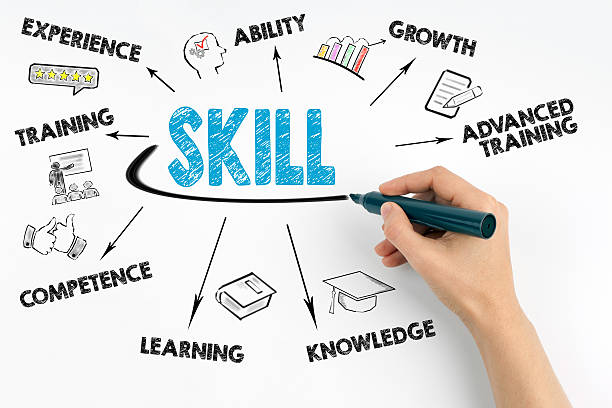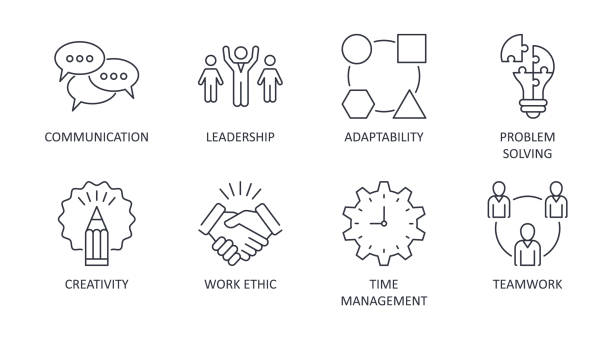1. Introduction
Communication skills refer to the ability to convey or share ideas and feelings effectively. These skills encompass speaking, listening, writing, and non-verbal cues like body language and eye contact. Developing strong communication skills allows individuals to express themselves clearly and understand others more effectively.
Understanding how to improve communication skills is crucial in both personal and professional life. In relationships, effective communication fosters trust and reduces misunderstandings. In the workplace, it enhances teamwork, leadership, conflict resolution, and overall productivity.
Whether you’re giving a presentation, writing an email, or simply having a conversation, knowing how to improve communication skills ensures your message is delivered and received as intended.
2. Types of Communication
Verbal Communication
Verbal communication involves using spoken words to convey messages. It includes tone, clarity, vocabulary, and the structure of your speech. To master how to improve communication skills, one must focus on improving their verbal delivery through active practice and feedback.
Non-Verbal Communication
Non-verbal communication includes body language, facial expressions, eye contact, posture, and gestures. These elements often say more than words. Understanding how to read and use non-verbal cues is essential in learning how to improve communication skills.
Written Communication
This includes emails, reports, messages, and any form of written expression. Good grammar, structure, and tone are vital to avoid misunderstandings. Written communication is especially important in professional settings where clear documentation is key.
Visual Communication
Charts, infographics, diagrams, and visual presentations help simplify complex ideas. Visual tools are often used to support spoken or written communication, and they enhance how effectively your message is understood.
Listening Skills
Listening is often overlooked, yet it’s one of the most critical communication skills. Active listening means giving full attention, understanding before responding, and showing empathy. Improving your listening skills is a major part of how to improve communication skills.

3. Common Communication Challenges
Lack of Confidence
Many individuals struggle to express themselves clearly due to a lack of confidence. They fear making mistakes or being judged, which can lead to hesitation or silence. Boosting self-confidence is a key part of understanding how to improve communication skills
Fear of Public Speaking
Speaking in front of a group is a common fear. Nervousness, anxiety, or stage fright can hinder effective communication. Regular practice, preparation, and techniques like deep breathing can help overcome this barrier.
Misinterpretation of Tone or Body Language
Messages can be misunderstood if tone or non-verbal cues are unclear or misread. For example, sarcasm in text or lack of eye contact in conversation might send the wrong message. Being mindful of how you deliver and receive cues is critical to how to improve communication skills.
Poor Listening Skills
Interrupting, daydreaming, or failing to understand the speaker’s point are all signs of poor listening. Without strong listening skills, true communication cannot happen. Becoming an active and empathetic listener is essential for effective communication.
4. Proven Ways to Improve Communication Skills
Practice Active Listening
Active listening means giving full attention to the speaker, understanding their message, and responding appropriately. This is a crucial part of how to improve communication skills in both personal and professional settings.
Expand Your Vocabulary
A rich vocabulary allows you to express thoughts more precisely. Reading regularly and learning new words can significantly support your journey in how to improve communication skills.
Improve Your Body Language
Non-verbal cues like posture, gestures, and eye contact make a big impact. Positive body language reinforces your spoken words and boosts confidence in communication.
Learn to Give and Receive Feedback
Constructive feedback improves communication effectiveness. Giving it politely and accepting it with grace helps you grow and adjust your style for better understanding.
Think Before You Speak
Taking a moment to organize your thoughts helps ensure clarity and reduces miscommunication. This habit supports anyone trying to master how to improve communication skills.
Read and Write Regularly
Reading enhances comprehension, and writing improves expression. These habits sharpen both written and verbal communication abilities.
Engage in Public Speaking or Group Discussions
Participating in discussions or presentations builds confidence and fluency. The more you practice in real-time situations, the more effective your communication becomes.
Practice Empathy in Conversations
Empathy helps you understand the emotions and perspectives of others. It’s a powerful tool in building trust and connecting with people, which is central to how to improve communication skills.

5. Digital Communication Etiquette
Email Communication Best Practices
Clear subject lines, concise content, and professional tone are essential for effective email communication. Avoid jargon, check for grammar errors, and always sign off politely. Mastering email etiquette is an important step in how to improve communication skills in the digital age.
Social Media and Messaging Tone
While social media is more casual, tone still matters. Misinterpretations are common in text, so clarity and respect are key. Emojis can help convey tone but should be used appropriately. Digital tone awareness helps tremendously when learning how to improve communication skills.Video Calls and Virtual Meeting Tips
Maintain eye contact by looking into the camera, speak clearly, and keep your background distraction-free. Mute when not speaking and avoid multitasking. These habits demonstrate professionalism and are vital for anyone focused on how to improve communication skills in virtual settings.
7. Role of Communication in Career Success
How Effective Communication Improves Leadership
Strong communication skills are at the heart of great leadership. Leaders who express ideas clearly, listen actively, and provide constructive feedback inspire confidence and motivate their teams. Understanding how to improve communication skills is essential for anyone aiming to lead effectively.
Importance of Communication in Teamwork and Customer Service
Collaboration thrives when team members communicate openly and respectfully. Whether sharing ideas or resolving conflicts, clear communication helps maintain harmony and productivity. In customer service, the ability to listen, empathize, and respond appropriately builds trust and satisfaction. Mastering how to improve communication skills strengthens both internal and external professional relationships.
8. Conclusion
In conclusion, developing strong communication skills involves more than just speaking clearly—it’s about listening actively, reading non-verbal cues, choosing the right words, and engaging meaningfully with others. Understanding how to improve communication skills can make a significant difference in both personal and professional success.
Consistent effort and regular practice are key. Whether it’s participating in discussions, refining your writing, or working on body language, each step forward enhances your ability to connect and influence effectively.
Continuous improvement is crucial. Communication is a lifelong skill, and staying mindful of your progress ensures you keep growing. Remember, anyone can learn how to improve communication skills with dedication and the right strategies.

Frequently Asked Questions (FAQs)
1. What are the most effective ways to improve communication skills?
The most effective ways include practicing active listening, improving body language, expanding vocabulary, engaging in public speaking, and regularly reading and writing. Consistent practice is key to success.
2. Can communication skills be learned or are they natural?
Communication skills can absolutely be learned and improved over time. While some people may have a natural talent, anyone can master how to improve communication skills with focus and dedication.
3. How long does it take to improve communication skills?
The time varies for each individual depending on their starting point and consistency. With regular effort, noticeable improvements can be seen within a few weeks to a few months.
4. Why is active listening important in communication?
Active listening shows respect and understanding, builds trust, and ensures clarity. It’s a foundational part of how to improve communication skills in any setting.
5. How can I improve my communication skills at work?
You can start by asking for feedback, attending communication workshops, practicing clear email writing, and observing how effective communicators interact. Team meetings are a great place to practice.
6. What role does non-verbal communication play?
Non-verbal cues like gestures, posture, eye contact, and tone often communicate more than words. Becoming aware of these aspects is essential to mastering how to improve communication skills.
7. Are communication skills important for introverts?
Absolutely. Introverts can be excellent communicators. Improving communication doesn’t mean becoming overly talkative—it means expressing thoughts clearly and confidently in your own style.
8. Does improving communication help in personal relationships too?
Yes. Strong communication skills enhance understanding, reduce conflicts, and strengthen emotional bonds in both personal and professional relationships.
9. Can digital tools help me improve communication skills?
Yes, tools like grammar checkers, speech recording apps, communication courses, and even virtual public speaking platforms can support your journey of how to improve communication skills.
10. What are some common mistakes to avoid while improving communication?
Avoid interrupting others, speaking without clarity, using negative body language, and failing to adapt your tone to your audience. Recognizing these mistakes is part of growth.